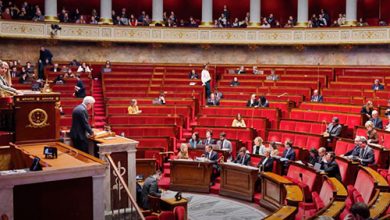THE CIRCULAR ECONOMY
A year’s worth of trash that fits in a single Mason jar… this seems to be the promise that popular international advocates of the ‘zero waste’ movement such as Bea Johnson make with their somewhat ambitious take on minimising one’s environmental footprint.
TURNING TRASH INTO TREASURE
Zulfath Saheed zeroes in on initiatives to curb the environmental impacts of waste
So much so that there’s now an entire community of web influencers promoting a zero waste lifestyle – usually together with adopting a more minimalist approach to material possessions, primarily in the interest of making a positive impact on the planet. While single-use plastics and a culture of disposables are commonly identified as major culprits when it comes to the generation of waste (a problem not altogether alien to the likes of Sri Lanka), the zero waste movement seeks to encourage both individuals and institutions to scrutinise more closely consumption and production patterns – meaning there’s an opportunity for businesses to jump on the bandwagon.
CONCEPT DEFINED According to the Zero Waste International Alliance, the eponymous concept that is taking off all over the world – from Japan to Turkey and the US – can be defined as “the conservation of all resources by means of responsible production, consumption, reuse and recovery of products, packaging and materials, without burning and without discharges to land, water or air that threaten the environment or human health.”
This refers to designing and managing products and processes in such a way that it mimics natural systems – i.e. where there is no waste, and resources are recovered and reused. While the term ‘zero waste’ is more an ideal than a truly achievable target, the ultimate aim is to minimise the amount of waste relegated to landfills or incinerators.
CORPORATE INTEREST Earlier this year, the Loop Alliance was launched at the World Economic Forum (WEF) Annual Meeting 2019 in Davos with plans to introduce zero waste packaging to help end plastic pollution.
WEF helped connect TerraCycle – a global waste management and recycling company – with logistics entity UPS, and global retailers and consumer goods companies (including Procter & Gamble, Coca-Cola, Carrefour, Tesco, Mondelēz International, PepsiCo, Danone, Mars, Nestlé and Unilever), to develop and pilot a zero waste e-commerce system called Loop.
Loop “aims to promote responsible consumption and eliminate waste by introducing a new way for consumers to purchase, enjoy and recycle their favourite products. Instead of relying on single-use packaging, it delivers products to consumers’ doorsteps in durable packaging that is collected, cleaned, refilled and reused, sometimes more than 100 times.”
PACKAGE FREE The level of interest in zero waste on the part of corporate giants is a definite positive but may not be altogether altruistic. Although yet to make a mark in South Asia, ‘package free stores’ – which often sell consumables in bulk form, and give customers a chance to bring their own bags and refillable containers – have mushroomed across the world.
Environmental activist Lauren Singer launched the Package Free Shop in NYC’s Brooklyn back in 2017. Similar stores have entered the fray elsewhere in the world as well, from UnPackt and The Social Space in Singapore, to Lush stores in the UK and the Middle East’s first zero waste shop – EcoSouk – in Beirut.
Apart from physical package free shops, zero waste enthusiasts are also able to purchase essentials through online stores, some of which even ship internationally.
LOCAL INITIATIVES Amid a higher level of social consciousness particularly among the younger generation, sustainable concepts are gaining traction here in Sri Lanka as well.
While zero waste remains at a nascent stage in the island, initiatives such as Good Market help highlight steps taken in this direction.
For instance, Good Market looks to help its vendors and community members transition to zero waste practices by setting and enforcing achievable minimum standards, making zero waste alternatives more accessible and affordable, working with the community to raise minimum standards as alternatives become available, recognising and celebrating enterprises that are taking the lead on waste reduction, and making it easier for people with waste to connect with vendors who can use that waste as a resource.
Among its network partners are the e-commerce and online platforms JustGoodness, which prioritises products from local small businesses that are good for people and the planet, and WasteShare – it connects people and companies that create waste in Sri Lanka, with people and companies that can use waste for good.
THE BIG PICTURE Considered the ‘mother of the zero waste lifestyle movement,’ best-selling author Johnson – who has 200,000 plus followers on Instagram – notes that the zero waste lifestyle can only work if it becomes part of a practical solution, commenting in a Refinery29 interview: “If it’s not good for you and you’re only doing it for environmental reasons, you won’t be able to stick with it in the long run… But if along the way you discover it’s actually good for you, that’s when you’ll stick to it.”
This would be the challenge facing zero waste practitioners the world over.









